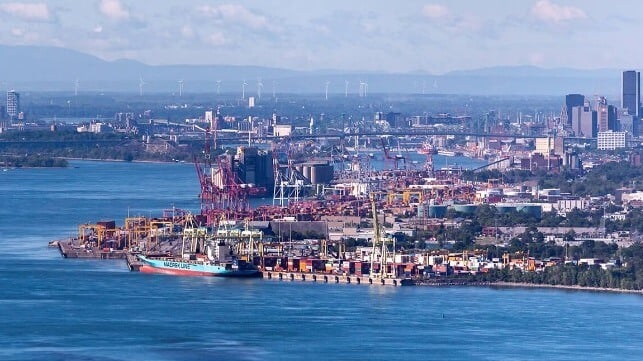Canadian Unions Plan Court Challenges to Arbitration Ending Port Strikes

The unions representing the foremen for ports in British Columbia and the dockworkers in Montreal both responded angrily to the announcement that the federal government was mandating final and binding arbitration in their contract disputes. Both of the unions are being supported by the broader labor movement in Canada when they said they would seek charter challenges to the decision by Labour Minister Steven MacKinnon.
On the West Coast, where the International Longshore and Warehouse Union Ship & Dock Foremen Local 514 has been locked out since November 4, the union leadership called the government’s decision “an insult” and said it was denying workers’ bargaining rights.
“We will fight this order in the courts. We will fight the arbitrated forced contract in the courts,” said Frank Morena, president of the local, in a press release. “Labour Minister Steven MacKinnon has unfairly given the BC Maritime Employers Association (BCMEA) the one-sided federal intervention it wanted from locking out workers and closing BC ports.”
At the same time, the Quebec branch of the Canadian Union of Public Employees (CUPE), which represents the port of Montreal’s nearly 1,200 dockworkers, called it a “dark day for workers’ rights.” In a press release, the union asserted, “The right to collective bargaining is a constitutional right.”
Montreal dockworkers had been striking against two of the large container terminals that had contracts with MSC Mediterranean Shipping Company. On Sunday, members across the port nearly unanimously rejected the “final offer” from the Maritime Employers Association. They were locked out largely closing the Port of Montreal as on Monday.
Both unions said on Tuesday that they planned to file court challenges to the direction by the Labour Minister of the Canada Industrial Relations Board to begin the final arbitration process. MacKinnon said it was clear that there was an impasse in both negotiations and that while the government supports negotiations the strikes were now having broader repercussions on more Canadians.
Labor unions including Teamsters Canada issued statements in support of challenges while businesses expressed relief that a resolution was in reach. Businesses and trade organizations had increasingly been pressuring the federal government to intervene.
With the potential for challenges, activity at the ports has not resumed while the unions and employers were awaiting instructions from CRIB. MacKinnon had said it could be a few days before operations were fully restarted.
The Greater Vancouver Board of Trade posted a calculator on its website to show the impact of the work stoppage including the ports of Vancouver and Prince Rupert as well as smaller Pacific ports. As the lockout passes nine days, they are showing the value of trade disrupted at C$7.2 billion (US$ ). They emphasize this is just trade stopped at the ports and does not reflect the broader economic implications to Canada.
